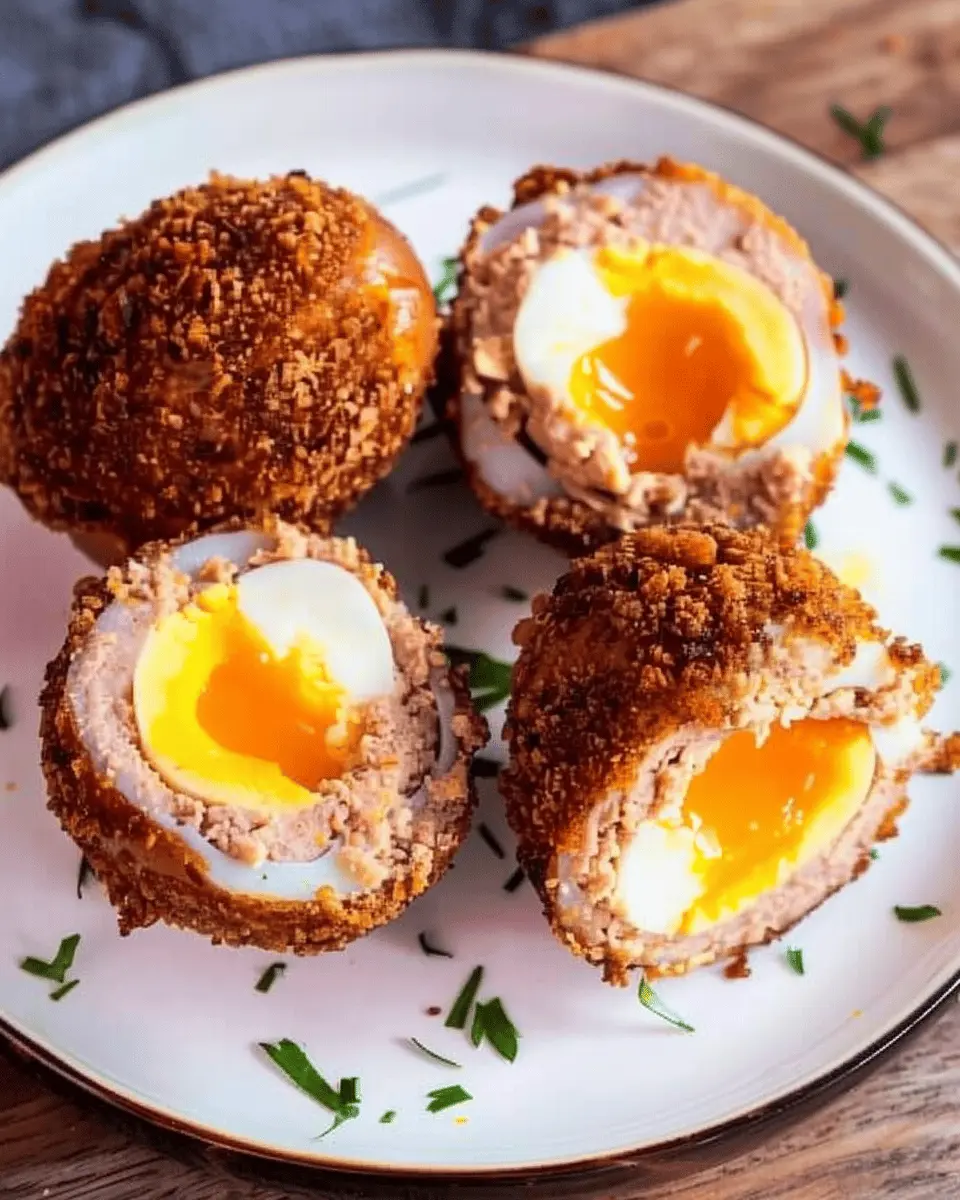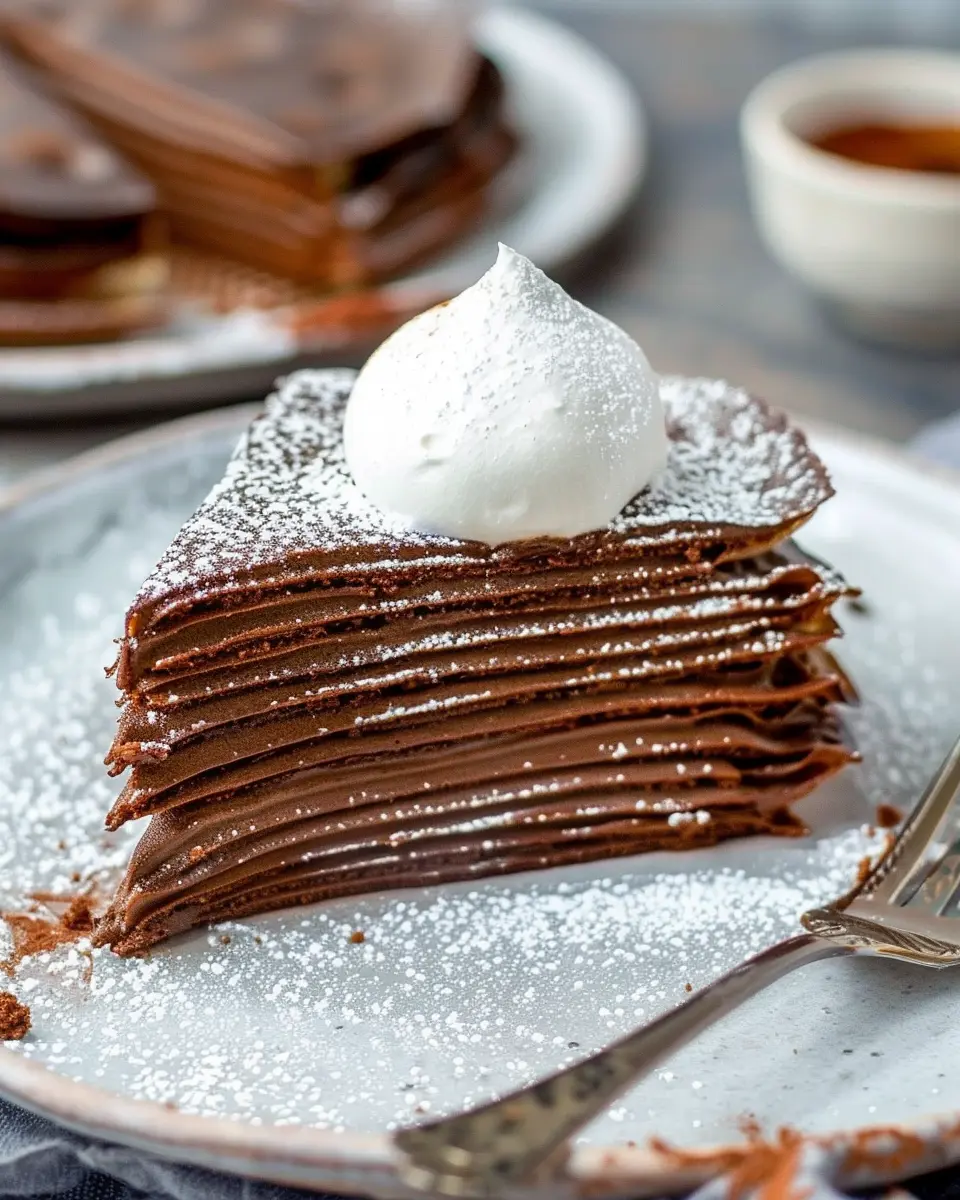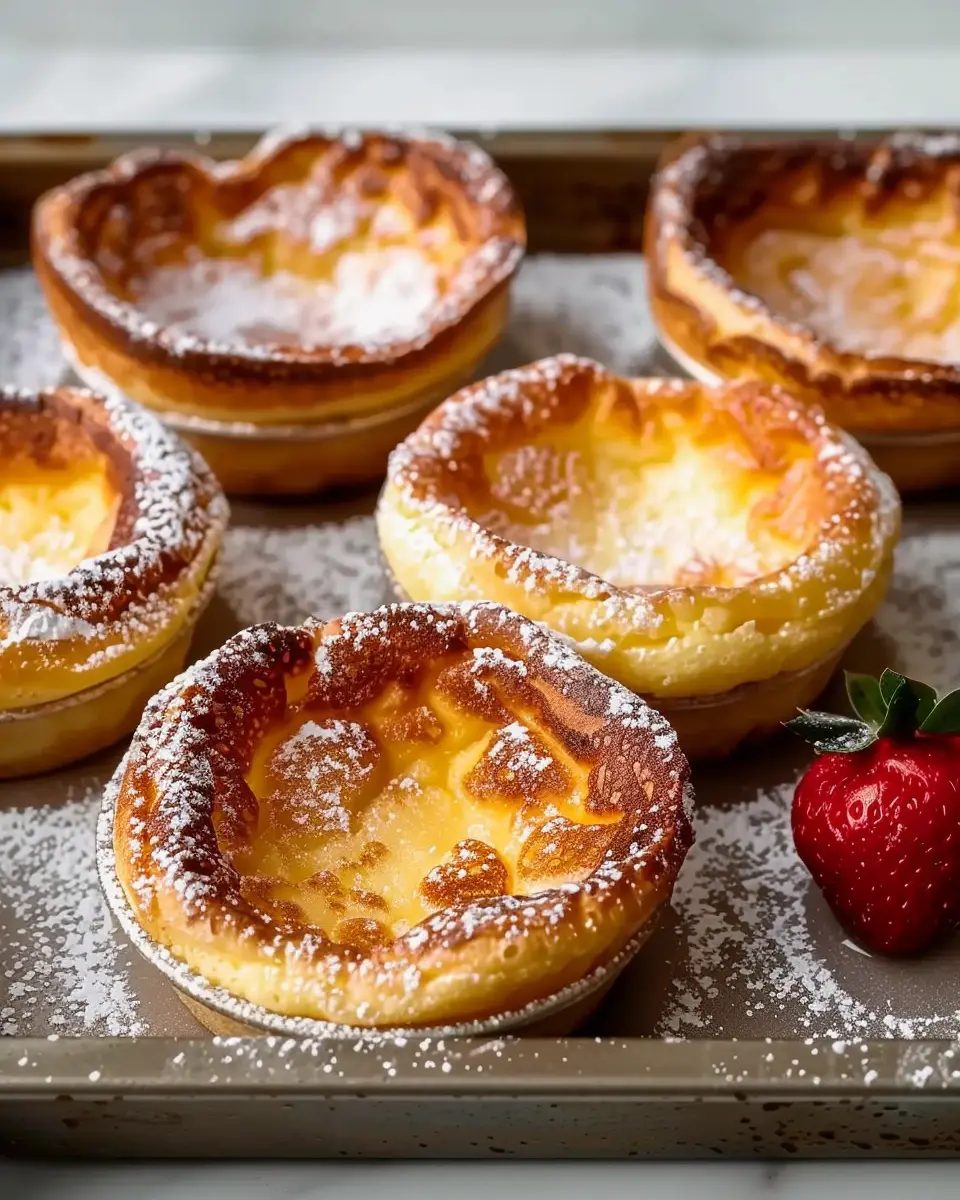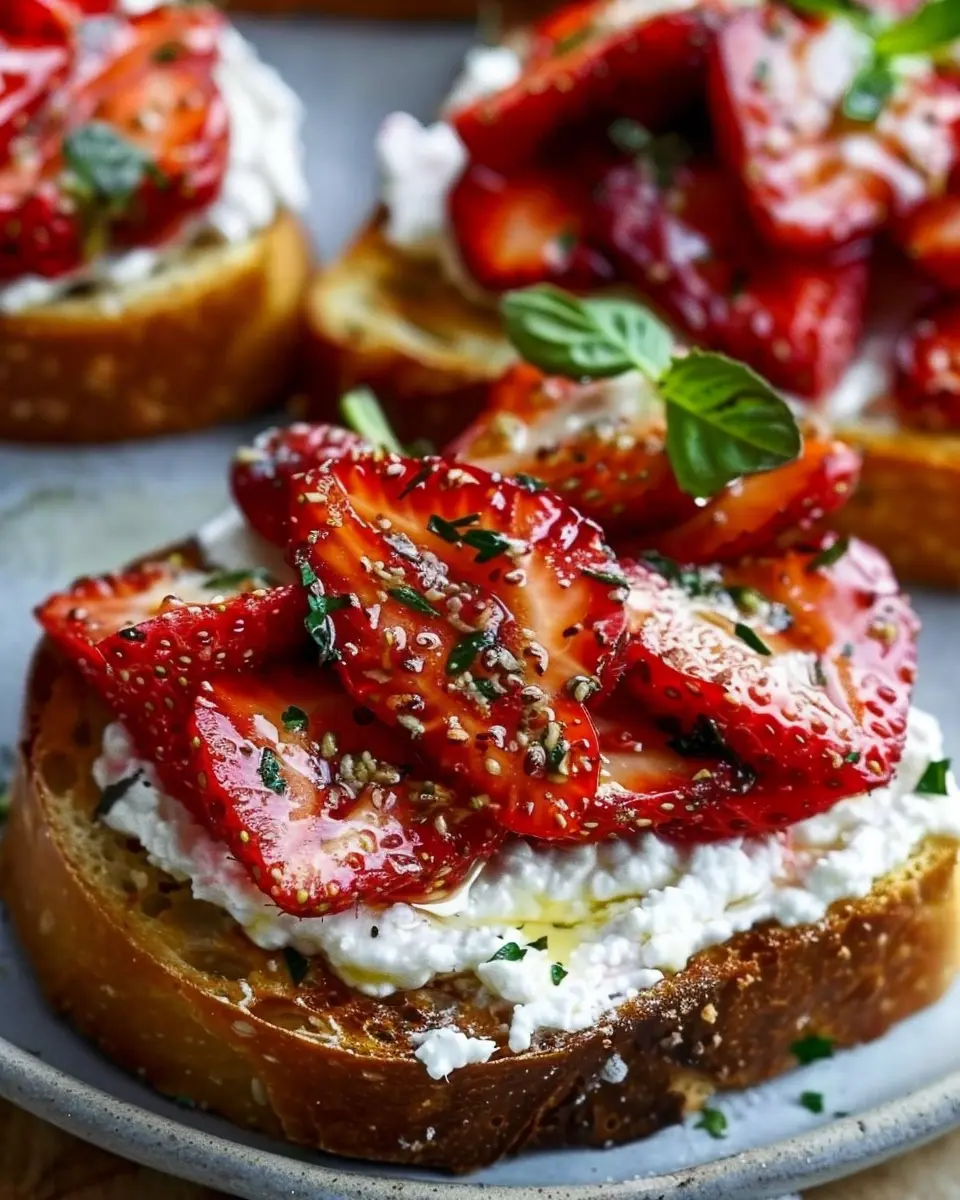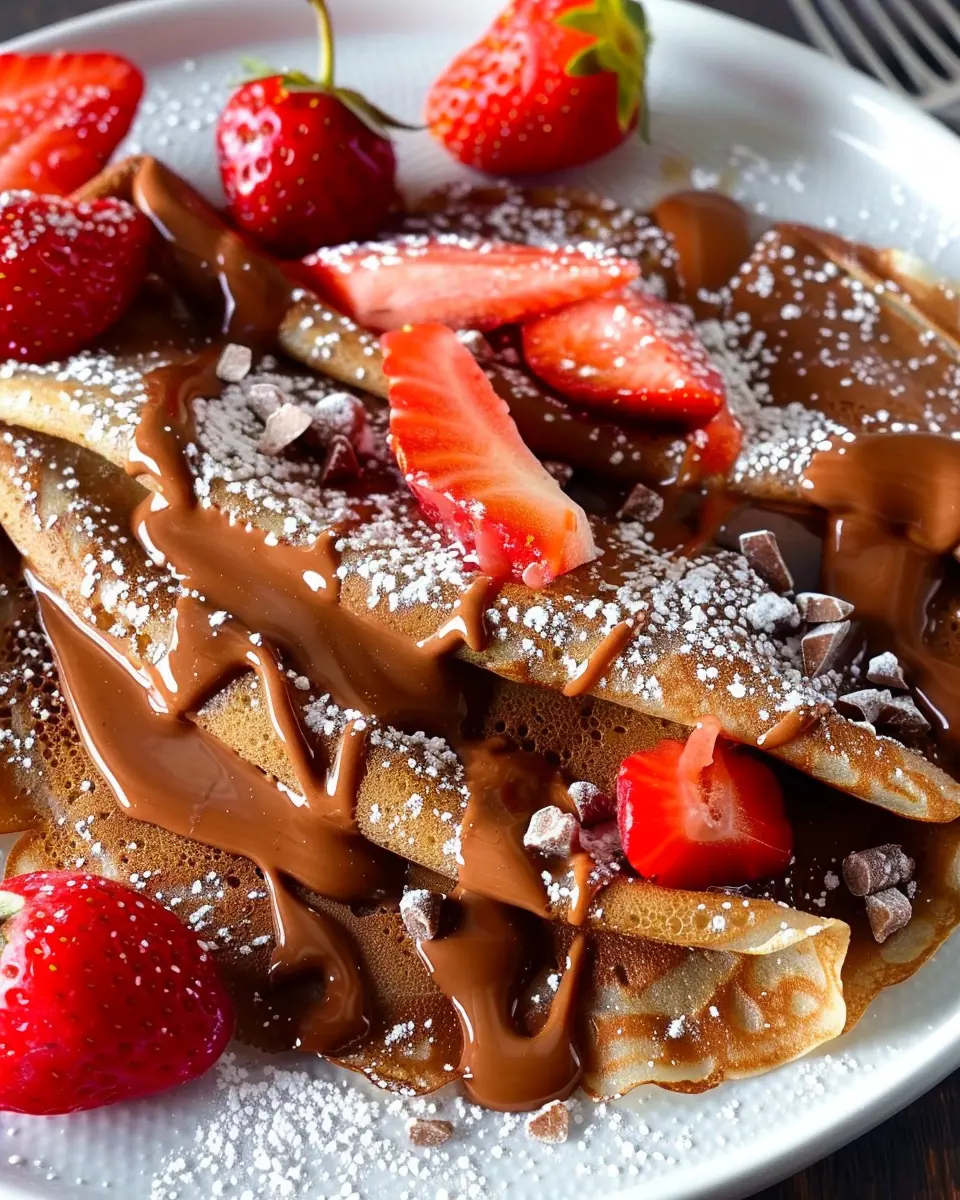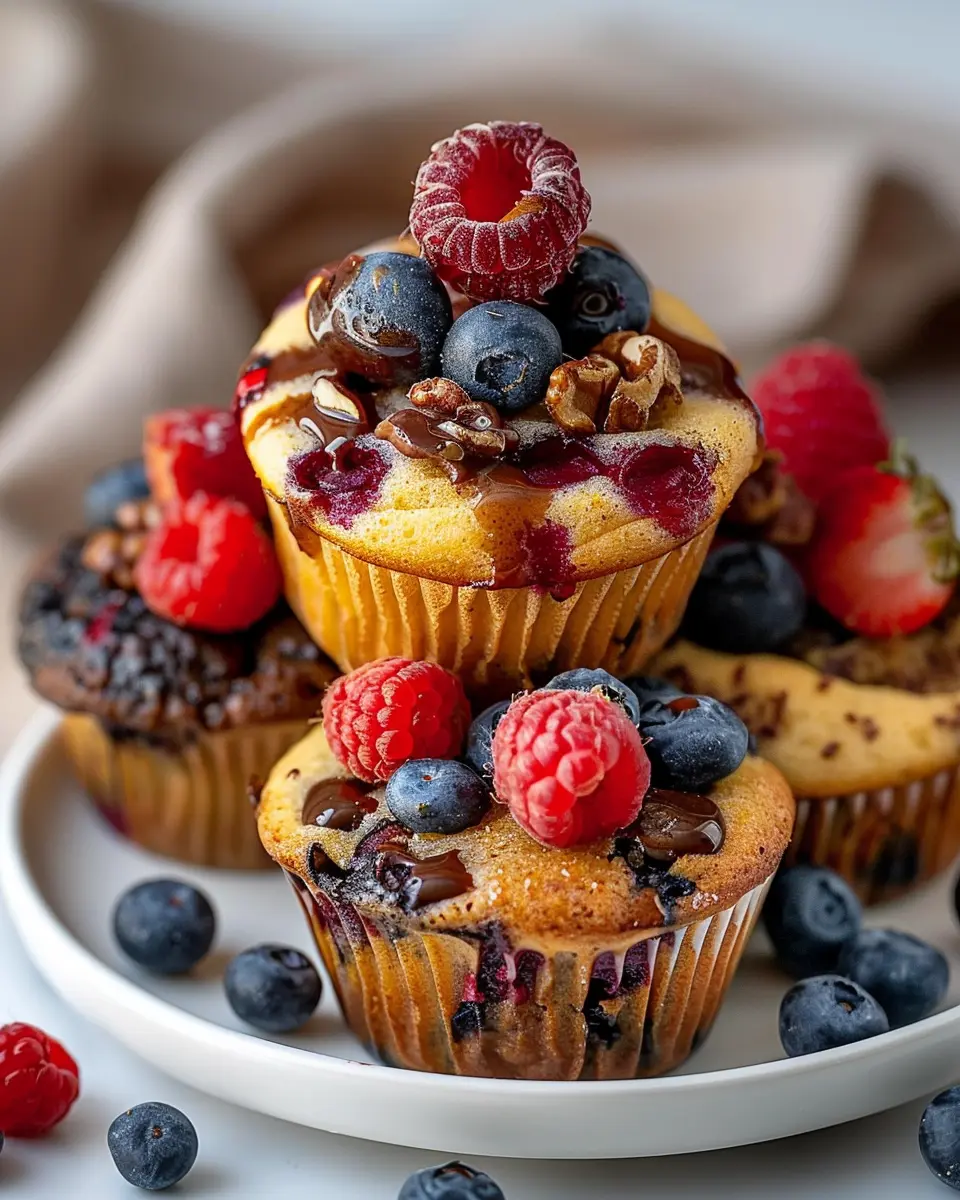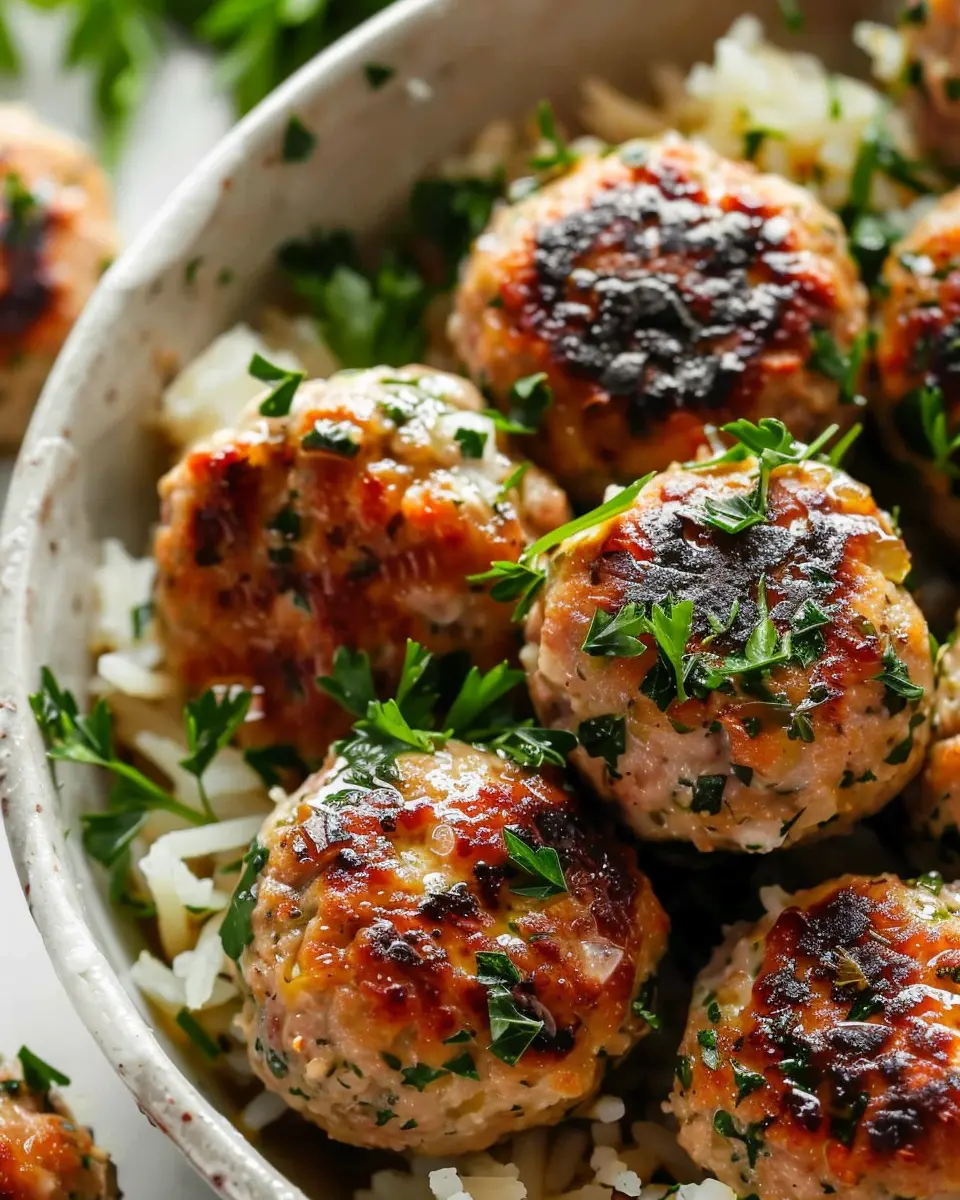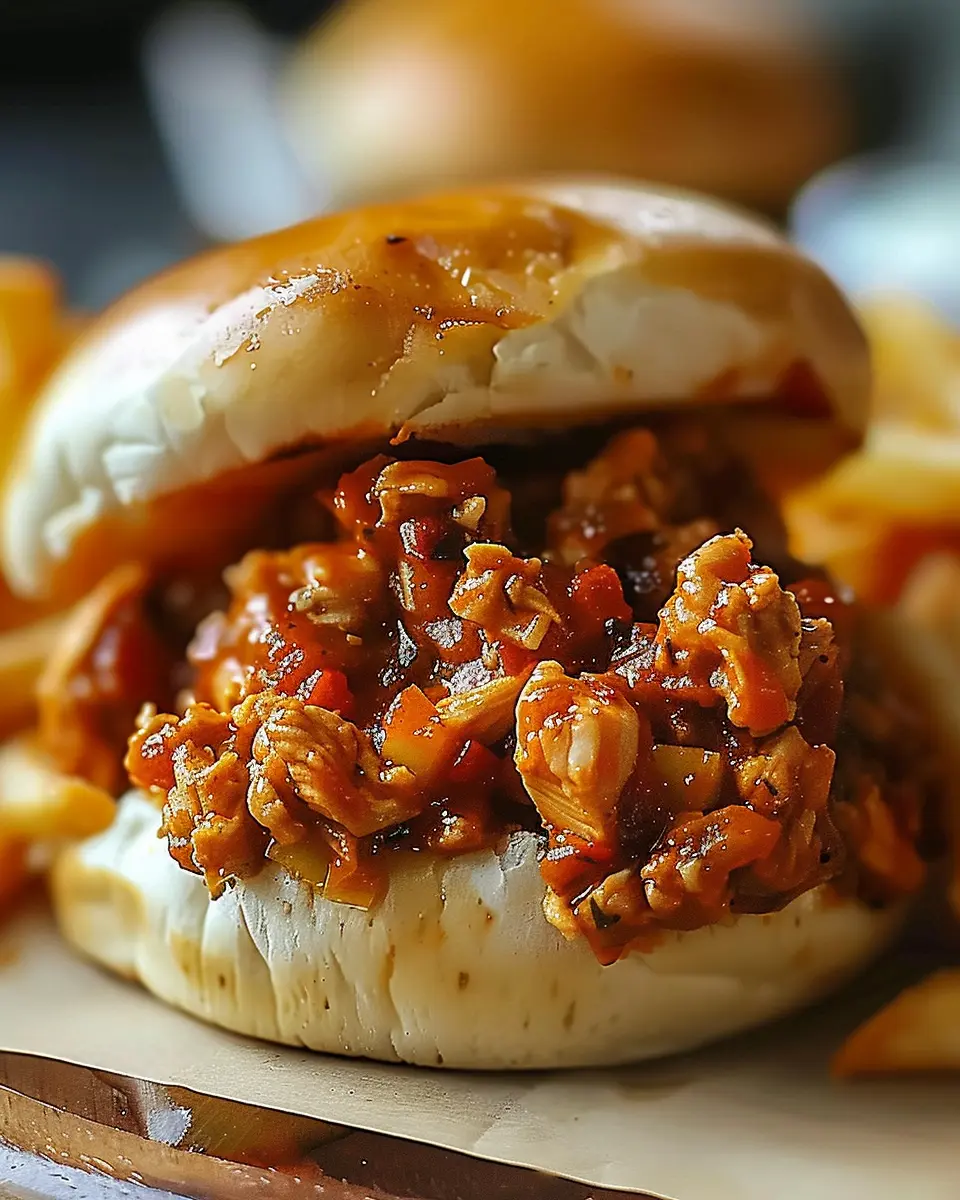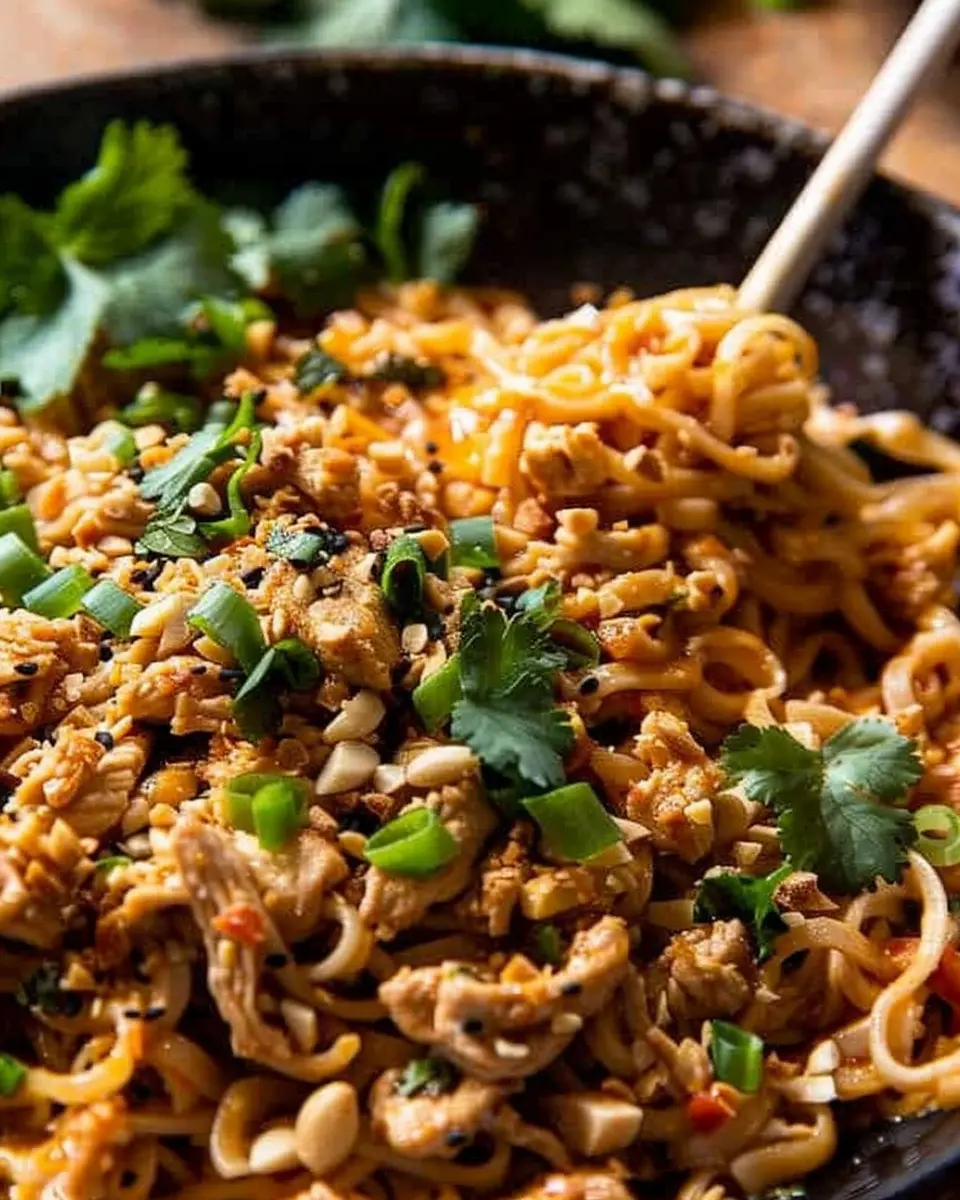Introduction to Classic British Scotch Eggs
When you think about quintessential British snacks, classic British Scotch eggs are often at the top of the list. So, what exactly are these delightful morsels? At their heart, a Scotch egg is a hard or soft-boiled egg wrapped in seasoned sausage meat, coated in breadcrumbs, and deep-fried to golden perfection. This combination of textures and flavors makes them an irresistible hit, whether you’re hosting a picnic in the park or planning a cozy night in.
So why do people love classic British Scotch eggs so much? For starters, they perfectly balance rich and savory elements. The creamy egg yolk harmonizes beautifully with the robust flavor of the beef sausage, while the crunchy breadcrumb coating adds a satisfying crunch. Not to mention, they are portable and make for an exciting addition to a grazing board or a lunchbox. Their versatility extends beyond just a snack; Scotch eggs can be a hearty appetizer or a delightful main course when paired with a fresh salad.
Interestingly, the origins of Scotch eggs are a bit hazy, with some tracing their roots back to 18th-century England, while others link them to a similar dish from India. Regardless of where they originated, they’ve secured a beloved spot in British culinary culture. For a more comprehensive dive into their fascinating history, check out this BBC article.
Crafting the perfect Scotch egg can feel daunting, but having a few hints in your back pocket can make the process enjoyable. It’s about the quality of your ingredients—think fresh eggs and premium beef sausage. Additionally, mastering the art of boiling eggs to your desired doneness is key; you wouldn’t want to compromise that gooey yolk.
As we embark on this delicious journey to create classic British Scotch eggs, get ready to impress your friends with your culinary skills. Trust me, once you’ve tried making them yourself, you’ll understand why they’ve become such a treasured recipe in homes across the UK.
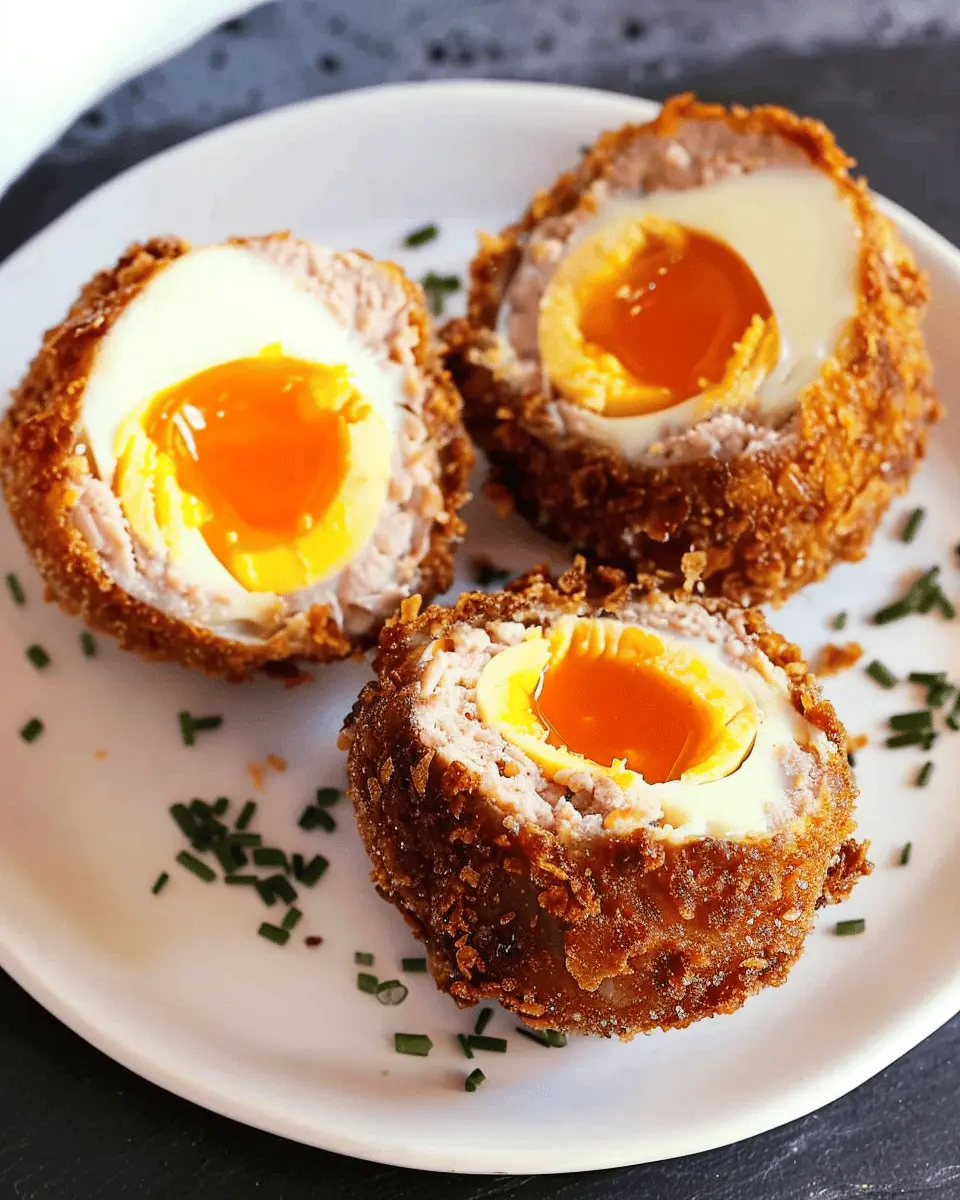
Ingredients for Classic British Scotch Eggs
Creating classic British Scotch eggs is an enjoyable culinary adventure that brings together simple yet delightful ingredients. So, let’s dive into the essentials you’ll need for this classic dish that’s perfect for picnics, brunches, or even just a cozy night at home.
Essential Ingredients
-
Eggs: Use six large eggs, as they form the heart of your Scotch egg. The key is to boil them just right — firm whites with a slightly soft yolk for that perfect runny center.
-
Beef Sausages: About 500 grams of high-quality beef sausages provides the delicious, savory core. Opt for your favorite spiced variety to add extra flavor!
-
Breadcrumbs: Approximately 200 grams of fresh breadcrumbs will help create that irresistible crunch on the outside. Panko breadcrumbs work wonderfully if you prefer an extra crispy texture.
-
Seasoning: Don’t forget salt and pepper to elevate your flavor game. Consider adding a pinch of nutmeg for a warm, aromatic twist.
-
Oil for Frying: About a liter of vegetable oil will be needed for frying, giving your Scotch eggs that mouthwatering golden hue.
As you gather these ingredients, think about where they come from. Supporting local farms can make a big difference, not just to your dish but also to your community! If you’re new to making Scotch eggs, don’t hesitate to check out BBC Good Food for tips on choosing high-quality ingredients. Enjoy cooking!
Step-by-step preparation of Classic British Scotch Eggs
Making classic British Scotch eggs at home is a delicious venture that’s sure to impress friends and family alike. This beloved dish takes some time and effort, but the reward is absolutely worth it. Here’s how you can create these mouthwatering delights step by step.
Preparing the eggs
The first step in your journey to creating the perfect Scotch egg is to cook the eggs. You will need about 4 large eggs.
- Boil the eggs: Place your eggs in a saucepan, add water, and bring it to a boil. Once the water is boiling, let them simmer for about 7-8 minutes if you prefer a slightly runny yolk, or 10 minutes for a more firm yolk.
- Cooling: Once done, transfer them immediately to an ice bath for about 5 minutes. This will help stop the cooking process and make peeling them easier.
- Peel gently: Once cooled, tap the eggs on a hard surface and gently roll them to crack the shell. Carefully peel them under running water to ensure a smooth finish.
This technique not only helps you achieve a perfect boil but also provides a lovely texture on your egg’s surface, which will be essential during the next steps.
Preparing the beef sausage meat
Next, it’s time to prepare the beef sausage meat. This is the heart of your classic British Scotch eggs.
- Choose high-quality beef sausage: If you can, opt for fresh beef sausage or minced beef. If you’re buying pre-packaged sausage meat, ensure it’s well-seasoned and flavorful.
- Season it: Mix the sausage meat in a bowl with spices like salt, pepper, and some fresh herbs such as parsley or thyme to elevate its flavor even further. You can refer to recipes from BBC Good Food for inspiration.
Taking the time to season and prepare the meat well will make a significant difference in the overall taste of your Scotch eggs.
Coating your Scotch eggs
Now that the meat is ready, let’s prepare your eggs for their crispy exterior. This is where the real charm of classic British Scotch eggs lies!
- Divide the meat: Take your seasoned sausage meat and divide it into four equal portions.
- Wrap the eggs: Carefully flatten each portion of the sausage meat in your hands, then wrap it around a boiled egg, ensuring the egg is completely covered.
- Prepare the coating: Set up a station with three bowls: one with plain flour, one with beaten eggs, and one with breadcrumbs. The order is important—flour, egg, then breadcrumbs!
- Coat the eggs: Roll each wrapped egg in the flour, then dip it into the beaten eggs, and finally roll it in breadcrumbs until well-coated.
This coating process will give your Scotch eggs that coveted crunch when fried!
Frying the Scotch eggs
With everything prepared, it’s time to bring these beauties to life.
- Heat the oil: In a deep frying pan or a fryer, heat vegetable oil (enough to submerge the eggs) to around 170°C (340°F).
- Fry carefully: Gently lower each coated egg into the hot oil, frying in batches if necessary to avoid overcrowding. Fry them for about 6-8 minutes until they turn golden brown. Keep turning them gently to ensure an even color.
This stage is critical—monitor the temperature carefully so you don’t end up with soggy eggs.
Draining the cooked Scotch eggs
After they’ve reached that beautiful golden color, you’ll want to drain the excess oil.
- Use a slotted spoon: Carefully remove the Scotch eggs from the oil and place them on a plate lined with kitchen paper. This will absorb any extra oil and keep them crisp.
- Rest and cool: Let them rest for a few minutes before serving to allow the flavors to meld together.
As you can see, making classic British Scotch eggs is not only a labor of love but also a fun culinary project. Serve them warm or at room temperature, and enjoy the delightful surprise of a perfectly cooked egg nestled inside savory seasoned beef. Whether at a picnic or as a hearty snack, they’re sure to be a hit!
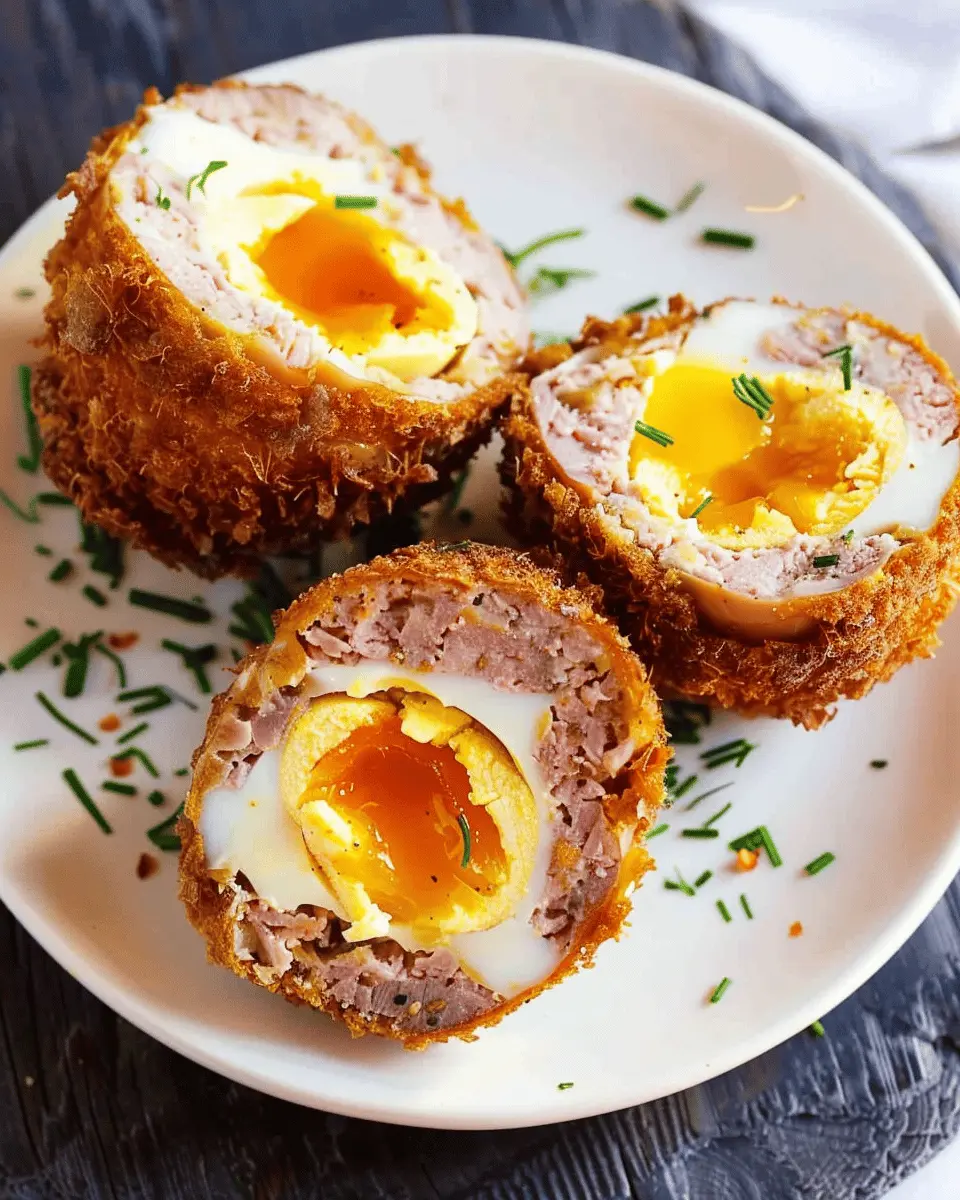
Variations on Classic British Scotch Eggs
When you think of classic British Scotch eggs, the traditional recipe comes to mind—succulent sausage meat wrapped around a perfectly boiled egg, all enveloped in crispy breadcrumbs. But as with any beloved dish, there are endless ways to shake things up! Here are a couple of delightful variations that cater to diverse palates.
Vegetarian Scotch Eggs
Vegetarian options are continuously gaining popularity, and for a good reason! How about crafting some delightful vegetarian Scotch eggs? By using a mixture of chickpeas, cooked quinoa, and finely chopped vegetables, you can create a hearty filling that’s bursting with flavor.
- Ingredients to consider:
- Mashed chickpeas
- Cooked quinoa
- Herbs like parsley and mint
- Breadcrumbs for that classic crunch
Simply wrap your filling around a soft-boiled egg, coat with breadcrumbs, and bake or fry until golden brown. This variation not only fits well within a vegetarian diet but also makes for a satisfying snack or light lunch. You could even explore recipes on BBC Good Food for diverse takes on vegetarian dishes.
Spicy Scotch Eggs with Jalapeños
If you’re looking to spice up your classic British Scotch eggs, why not add some heat? Incorporating finely chopped jalapeños into your sausage mixture provides a delightful kick. This variation is perfect if you’re hosting a gathering or simply want to elevate your snack game.
- Here’s how you can enhance your recipe:
- Mix in jalapeños with your turkey bacon or beef sausage
- Add a sprinkle of chili powder or cayenne for an extra fiery flavor
These spicy Scotch eggs will not only be a conversation starter but also an exciting twist on a timeless classic. Pair them with a tangy dip or a refreshing yogurt sauce to cool things down.
With these variations, classic British Scotch eggs no longer have to remain static! Whether you’re a vegetarian or a spice aficionado, there’s something here for everyone. What twist will you try first?
Cooking tips and notes for Classic British Scotch Eggs
Achieving the perfect yolk
Getting that perfectly gooey yolk is essential for classic British Scotch eggs. Start by boiling your eggs for exactly six to seven minutes; this gives a slightly soft center. After boiling, plunge them into an ice bath to stop the cooking process. This technique not only makes peeling easier but also locks in the ideal texture.
Tips for frying safety
Frying can be intimidating, but with the right precautions, it can be a breeze. Use a deep-fry thermometer to ensure your oil reaches about 350°F (175°C). If you don’t have one, drop a tiny piece of bread into the oil; it should brown in about 60 seconds if it’s hot enough. Always avoid overcrowding the pan to maintain the oil temperature and keep your Scotch eggs crispy.
By following these tips, you’ll serve up a plate of classic British Scotch eggs that are sure to impress. Looking to level up your kitchen game? Check out more about frying safety at FoodSafety.gov. Happy cooking!
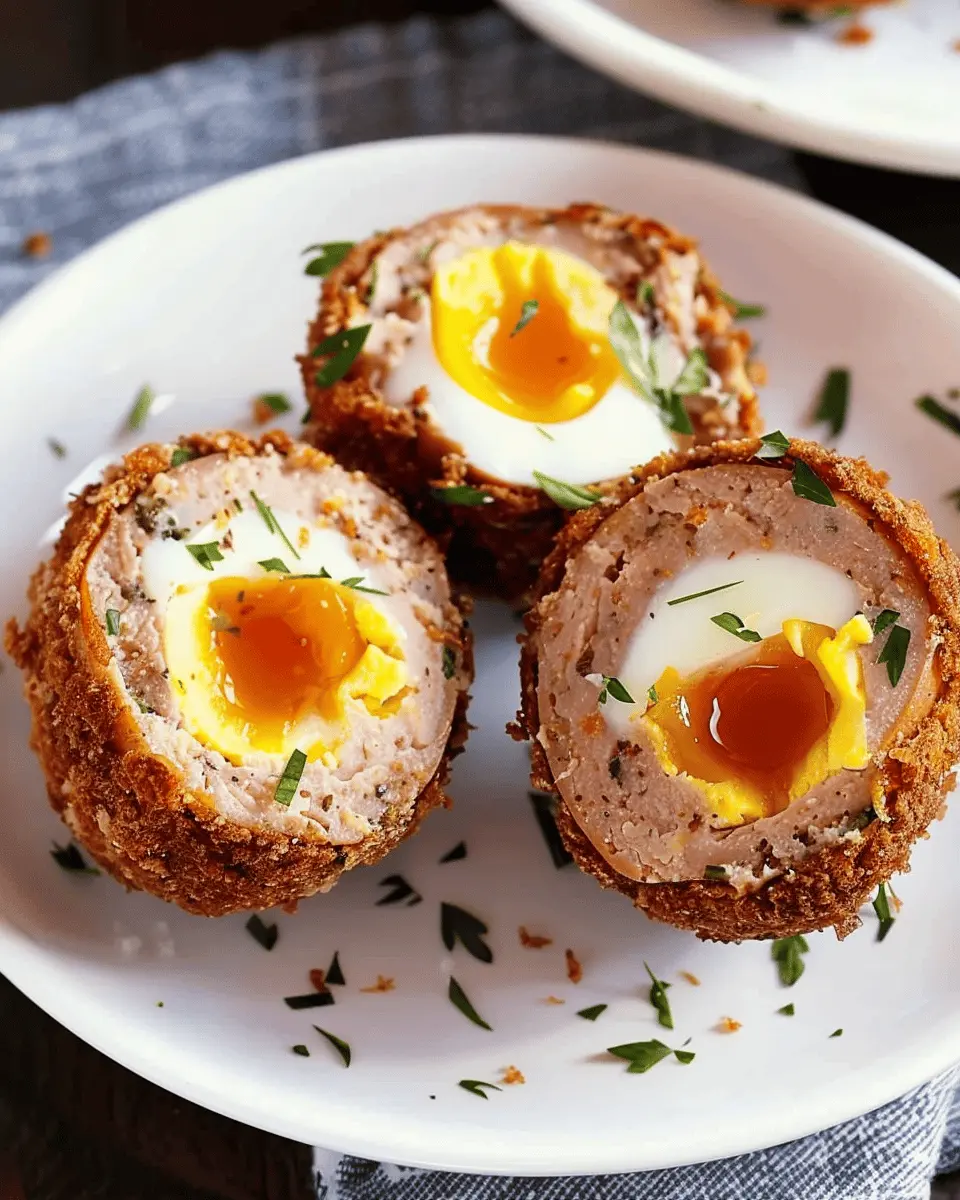
Serving suggestions for Classic British Scotch Eggs
Dipping sauces to pair with Scotch eggs
When serving your classic British Scotch eggs, consider enhancing their flavor with a selection of homemade dipping sauces. A tangy mustard aioli is a great choice, offering a rich creaminess that contrasts beautifully with the crispy exterior. Alternatively, a zesty garlic mayo will add a delightful zing, making each bite truly memorable. For something a little different, try a sweet chili sauce — its subtle heat brings a fun twist to the traditional flavor profile.
Side dishes that complement Scotch eggs
Pairing side dishes with your classic British Scotch eggs can elevate your meal significantly. A fresh, crunchy salad tossed with cherry tomatoes, cucumber, and a light vinaigrette balances the richness of the eggs. You might also consider serving them alongside crispy sweet potato fries for a delightful texture contrast. Why not include a tangy coleslaw? Not only does it add a pop of color, but it also brings a refreshing crunch that pairs perfectly.
For more inspiration, check out these scotch egg serving tips from BBC Good Food.
Time breakdown for Classic British Scotch Eggs
Preparation time
Making classic British Scotch eggs begins with a bit of prep. You’ll want to set aside about 20-30 minutes for the preparation. This includes boiling your eggs, preparing the beef sausage mixture with ingredients like turkey bacon and seasoning, and wrapping the mixture around each egg.
Cooking time
Once you’re prepped and ready, the cooking time is roughly 30-35 minutes. This involves frying the Scotch eggs until golden brown and perfectly crisp. For an extra touch, you might consider baking them for an additional 10 minutes to ensure everything is cooked through.
Total time
In total, you’re looking at about 1 hour to 1 hour and 5 minutes from start to finish. Perfect for a weekend treat or a cozy gathering! By the way, if you need more tips on cooking methods, check out this guide on frying and baking techniques. Enjoy your culinary adventure with these delightful Scotch eggs!
Nutritional Facts for Classic British Scotch Eggs
Calories per Serving
When indulging in classic British Scotch eggs, you’ll find that each serving typically contains around 300-350 calories. While they can be a delightful treat, balancing your meal with lighter sides or veggies can help maintain your overall wellness.
Protein Content
These savory snacks are packed with protein, boasting about 20-25 grams per serving. This makes them a fantastic option for those looking to fuel their day or recover after a workout. Curious about high-protein snacks? Check out resources like the American Journal of Clinical Nutrition for more.
Fat Content
With a hearty 20-25 grams of fat per serving, classic British Scotch eggs provide a good dose of energy. However, it’s essential to be mindful of this if you’re watching your fat intake. Opting for leaner turkey bacon or baked versions can help you enjoy this classic without the guilt.
Whether you’re hosting a brunch or packing a picnic, knowing these nutritional facts can help you savor your Scotch eggs responsibly. What’s your favorite way to pair them?
FAQs about Classic British Scotch Eggs
If you’ve ever found yourself daydreaming about the perfect picnic or looking for a hearty snack, classic British Scotch eggs are likely on your mind. Let’s tackle some frequently asked questions to help you master this delightful dish.
Can I bake Scotch eggs instead of frying them?
Absolutely! While frying is the traditional method to achieve that crispy exterior, baking gives you a healthier alternative without sacrificing too much flavor. Preheat your oven to 375°F (190°C). After wrapping your eggs in sausage meat, simply place them on a parchment-lined baking sheet. Bake for about 25-30 minutes or until golden brown. They may not be as crispy as their fried counterparts, but they’re still delicious!
How do I store leftover Scotch eggs?
Storing your classic British Scotch eggs is a breeze. If you have leftovers, let them cool completely, then wrap them individually in plastic wrap or foil, or place them in an airtight container. They can be stored in the fridge for up to three days. If you want to enjoy them later, consider freezing them. Just make sure they’re properly wrapped to avoid freezer burn. When ready to eat, they can be thawed overnight in the fridge and reheated in the oven.
What can I use as a substitute for beef sausage?
If beef sausage isn’t your thing, don’t worry! You can substitute it with a variety of options. Consider using turkey sausage for a lighter version, or opt for seasoned chicken sausage for a different flavor profile. Vegetarian options like mushrooms or lentils can also work well, offering a unique twist on this classic dish.
For more details on alternative cooking methods and ingredients, you might want to check out resources on BBC Good Food or Serious Eats. Enjoy your cooking adventure with these scrumptious classic British Scotch eggs!
Conclusion on Classic British Scotch Eggs
Why you should try making Scotch eggs at home
Crafting classic British Scotch eggs in your own kitchen is a delicious adventure! These delightful snacks offer a beautiful fusion of flavors and textures — crispy exterior, savory beef sausage, and a perfectly cooked egg within.
Here are a few compelling reasons to give them a try:
- Customization: You can personalize ingredients to match your taste, swapping in turkey bacon or chicken ham for a twist.
- Impressive treats: They make for great party snacks or picnic items, sure to impress friends.
- Cost-effective: Homemade Scotch eggs save you money compared to cafe versions.
So, why not roll up your sleeves and give it a go? You’ll not only enjoy the process but also relish the delicious results! For tips on perfecting your eggs, check out this handy guide from the British Egg Information Service.
PrintClassic British Scotch Eggs: A Juicy Twist with Turkey Bacon
A delicious twist on a classic dish featuring turkey bacon for a healthier option.
- Prep Time: 20 minutes
- Cook Time: 15 minutes
- Total Time: 35 minutes
- Yield: 4 servings 1x
- Category: Appetizer
- Method: Frying
- Cuisine: British
- Diet: Low-carb
Ingredients
- 4 large eggs
- 1 pound turkey bacon
- 1 cup breadcrumbs
- 1 teaspoon salt
- 1/2 teaspoon black pepper
- 1/2 teaspoon paprika
- Cooking oil for frying
Instructions
- Boil the eggs for 6-7 minutes, then cool in an ice bath.
- Remove the shells and wrap each egg with turkey bacon.
- Roll each wrapped egg in breadcrumbs.
- Heat oil in a pan and fry the eggs until golden brown.
- Drain on paper towels and serve warm.
Notes
- For extra flavor, you can add herbs to the breadcrumbs.
- Serve with a side of mustard for dipping.
Nutrition
- Serving Size: 1 Scotch Egg
- Calories: 250
- Sugar: 0g
- Sodium: 800mg
- Fat: 18g
- Saturated Fat: 5g
- Unsaturated Fat: 10g
- Trans Fat: 0g
- Carbohydrates: 6g
- Fiber: 1g
- Protein: 20g
- Cholesterol: 200mg
Keywords: Classic British Scotch Eggs, Turkey Bacon, Healthy Recipe

